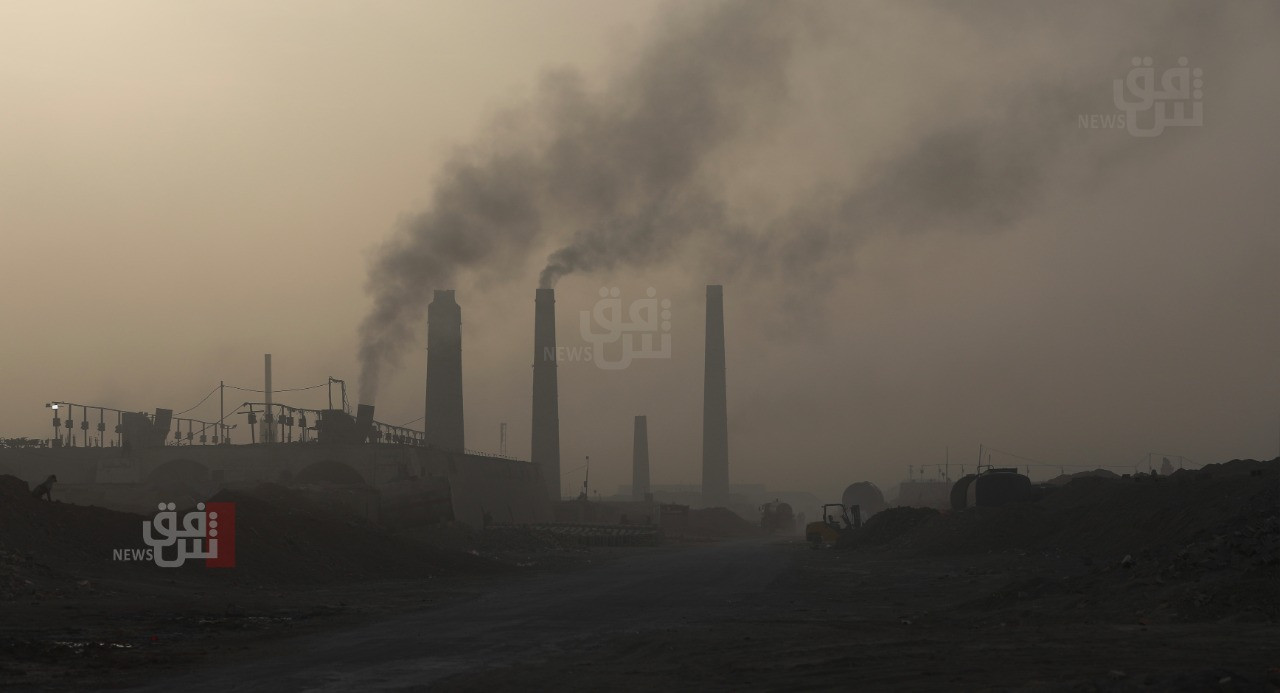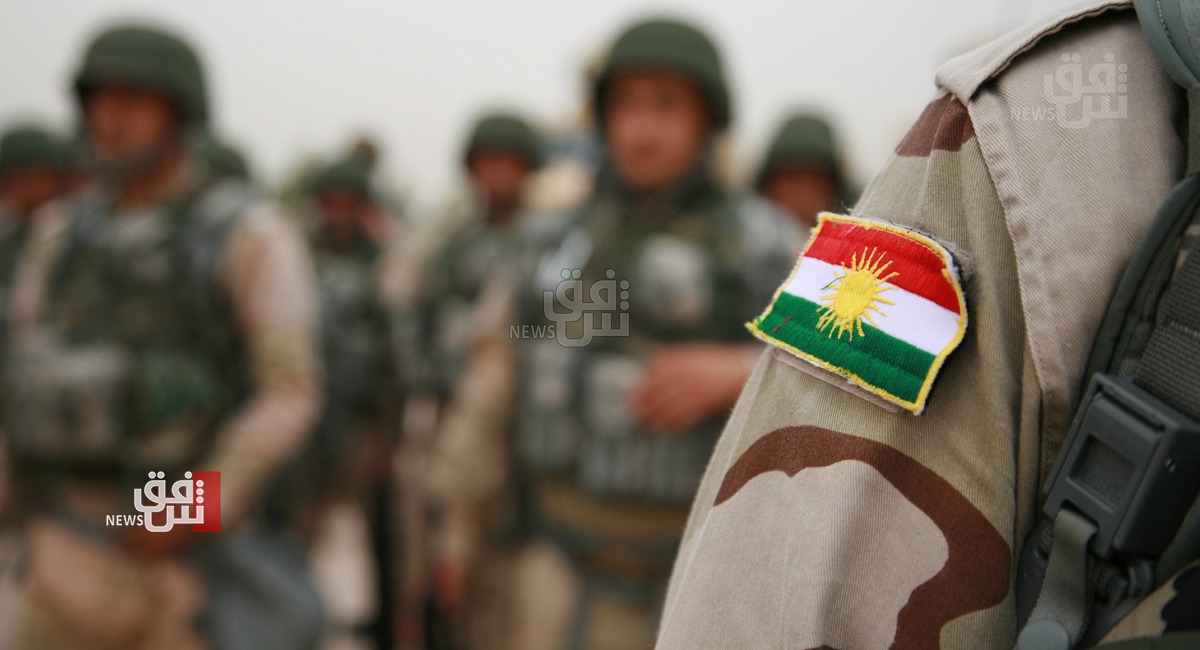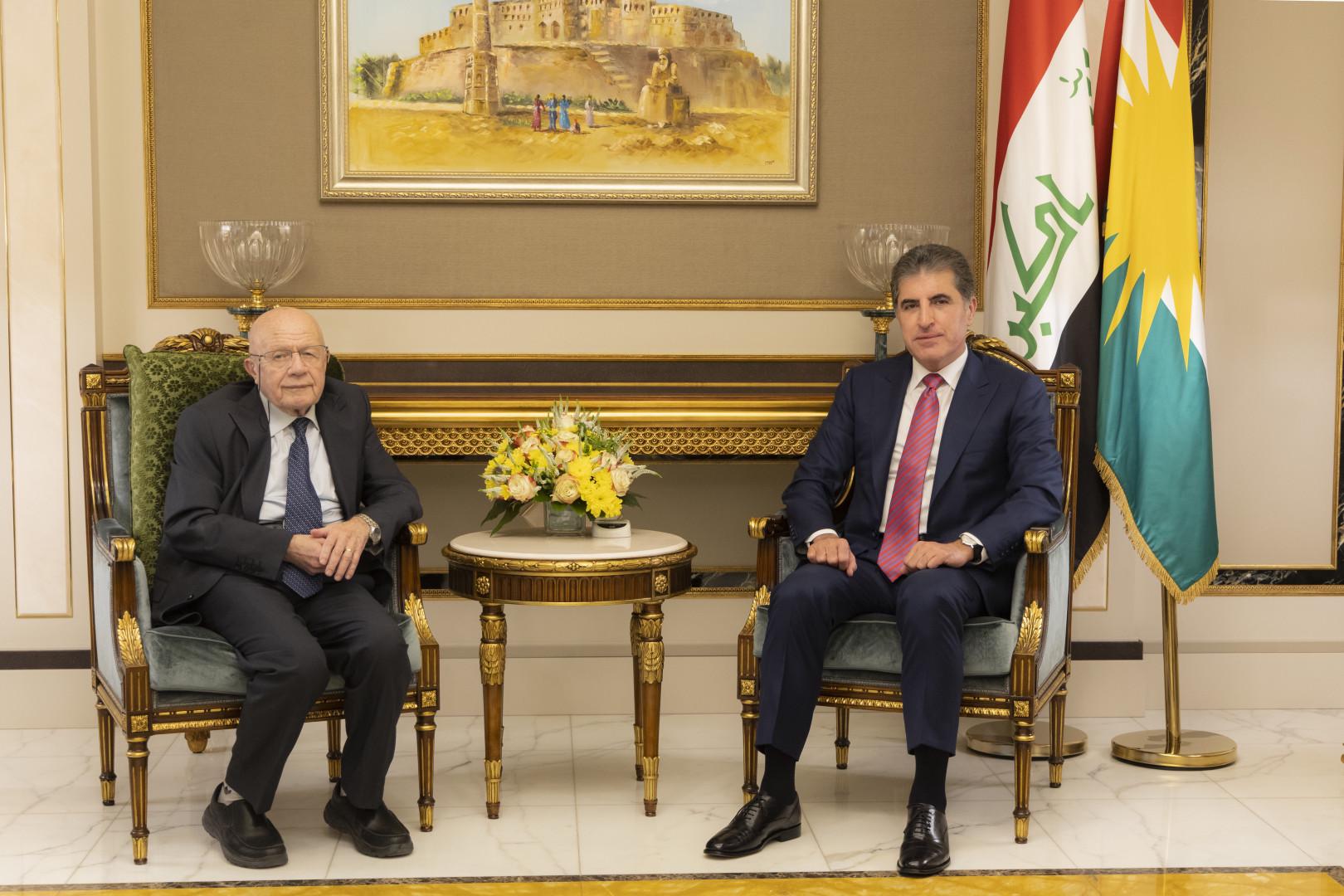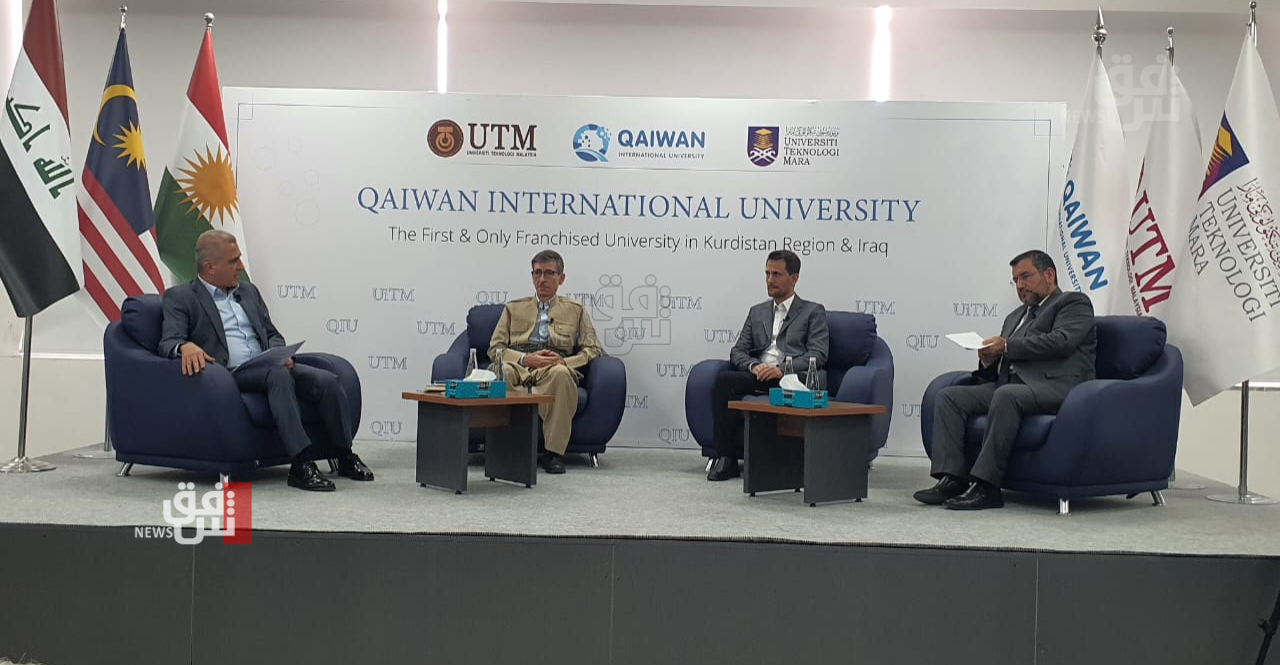Baghdad chokes under toxic smog as government scrambles for solutions

Shafaq News/Residents of Baghdad are facing a worsening air pollution crisis, with foulodors and toxic emissions engulfing the city. As the capital struggles withsoaring pollution levels, Iraqi Prime Minister Mohammed Shia Al-Sudani hasformed a ministerial committee to urgently tackle the situation amid risinghealth concerns for children and the elderly.
I ChokeEvery Night
Dr. AbbasAl-Husseini, a pediatric consultant based in Baghdad, says, "I choke everynight. I have developed bronchial allergies, and my voice has started to becomehoarse due to inhaling the foul odors that have engulfed the capital in recentdays. The smell is similar to that of rotten eggs, a result of carbon emissionsfrom incomplete combustion, especially in the areas east of the canal, nearunregulated dumping sites."
Speaking toShafaq News, Al-Husseini points out that, "While countries around theworld are investing in waste to convert it into resources such as electricityor energy, in Iraq, waste has become a source of toxic pollution. The improperdisposal has led to the release of sulfur dioxide, a harmful gas that posesrisks, especially to children and the elderly."
He explainsthat "Inhaling this toxic gas can cause respiratory infections andallergic bronchitis in children under five and the elderly. If left unchecked,it could lead to bloodstream infections as a result of lung inflammation. Insevere cases, it can be carcinogenic, and if it reaches fatal concentrations,it may result in heart failure, circulatory collapse, suffocation, andrespiratory failure."
AirPollution: Two Main Categories.
Environmentalresearcher and field observer Samim Salam attributes the primary causes of airpollution to two factors. "The first is industrial facilities such aspower plants, oxidized and non-oxidized asphalt factories, and the Dorarefinery," Salam explains to Shafaq News.
He furtherclarifies that "Industrial activities in Baghdad's outskirts or nearbycities—many of which operate without environmental approvals—produce fumes andemissions of sulfur dioxide or hydrogen disulfide. These gases, being heavierthan air, tend to accumulate between buildings."
As for thesecond cause of air pollution, Salam notes, "The burning of waste atunregulated landfills, such as those in Al-Rashid Camp and around the cities,called 'interim dumps,' before being moved to final dumping sites. Often, thesewastes are unintentionally set on fire, sometimes by scavengers searching forcopper or cardboard, leading to pollution."
Baghdad: TheMost Polluted Arab City
In 2022,Baghdad ranked first in the Arab world and 13th globally in terms of airpollution. "However, no significant measures have been taken sincethen," according to environmental expert Jassim Al-Asadi.
Al-Asaditells Shafaq News that "Air pollution in Baghdad is severe, and this isnot the first time such contamination has been recorded. Previously, the cityalso experienced water and soil pollution caused by wastewater saturated withheavy metals and hospital waste dumped into the Tigris River, as well asdesertification encroaching on the city."
Heattributes the black cloud of sulfur dioxide hanging over Baghdad to "theDora refinery located in central Baghdad, along with brick factories nearresidential areas, the burning of waste in various parts of the capital, andthe enormous vehicle and generator emissions."
Awell-informed source reveals that the Iraqi government is considering aproposal to relocate the Dora refinery outside the capital. The source informsShafaq News that the Council of Ministers is studying a plan to dismantle andmove the refinery from Baghdad, with a proposal to use the refinery's land foran investment project.
Additionally,the Green Iraq observatory, which specializes in environmental affairs, linkedthe frequent sulfur odor over Baghdad to the use of high-sulfur oil in powergeneration plants.
Theobservatory warned that Baghdad's air, particularly in recent days, has beenloaded with hazardous materials threatening the health of children and theelderly. It noted that Baghdad has recorded, for the first time, an airpollution rate of 515%.
EnvironmentalMinistry's Response
The IraqiMinistry of Environment has announced an "urgent" session to discusssolutions for Baghdad’s air pollution crisis, chaired by the capital’sgovernor. In a statement, the ministry noted that the session included anin-depth discussion on the air pollution issue and ways to combat it.
In a movereflecting the government’s efforts in addressing the matter, Prime MinisterAl-Sudani issued directives last Saturday to form a specialized ministerialcommittee to tackle the air pollution problem in Baghdad. The committee hasbeen instructed to submit its recommendations within two days.
Speaking toShafaq News, the spokesperson for the Ministry of Environment, Loui Al-Mukhtar,said, "A committee has been formed by the Prime Minister, and it isworking diligently. Air samples have been collected, and actions are beingtaken to improve the situation. The report will be finalized today and sent tothe Prime Minister, containing immediate measures as well as long-termsolutions to address this issue."
The Ministryof Environment had earlier explained that the harmful gas emissions andunpleasant odors experienced by Baghdad residents, especially late at night,are due to the burning of black oil in power plants, asphalt and brickfactories, and fires in unregulated landfills on the outskirts of the capital.




